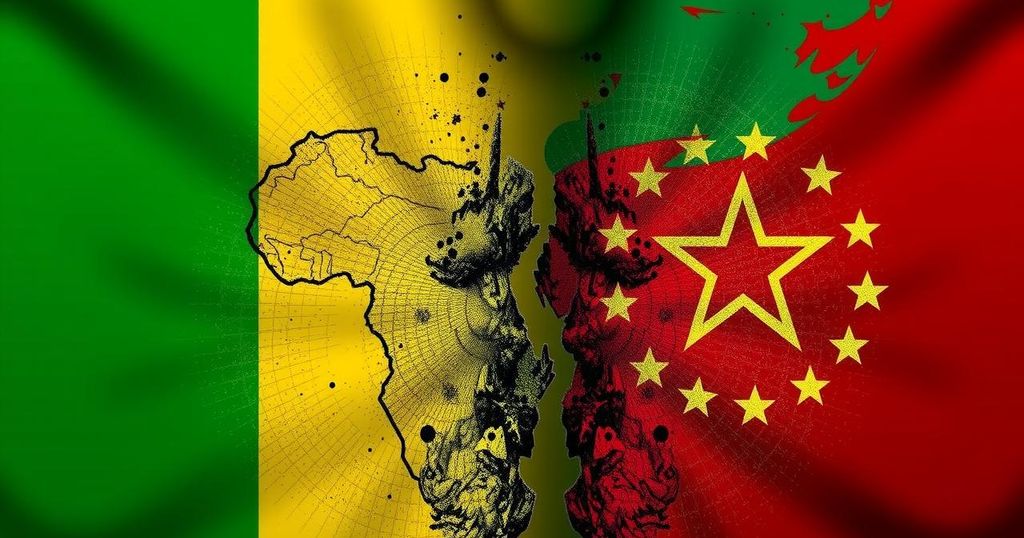President Hassan Sheikh Mohamoud’s policies pose significant threats to Somalia and the Horn of Africa by undermining Somaliland’s self-determination and obstructing Ethiopia’s access to Red Sea ports. This could reignite historical tensions, compromise regional stability, and diminish opportunities for economic cooperation, notably affecting the livelihoods of millions in the region.
The complexities of the Horn of Africa’s historical, political, and economic landscape significantly influence the power dynamics within the region. Currently, one of the foremost threats to the fragile stability in this area arises from the policies of Somalia’s President Hassan Sheikh Mohamoud. His actions not only jeopardize the lives of approximately 120 million individuals but also jeopardize the future of relations between Somalia and Ethiopia. President Mohamoud’s continuous denial of Somaliland’s right to self-determination and his disruptive initiatives intended to impede Ethiopia’s access to Red Sea ports threaten to create regional animosities while dismantling long-standing diplomatic alliances and destabilizing the delicate geopolitical equilibrium. Historically, Somaliland declared independence from Somalia in 1991, evolving into a sovereign state characterized by democratic governance, peace, and economic prosperity. Its strategic location next to Ethiopia has enabled Somaliland to forge various international partnerships, notably with the UAE, through a contract for the management of the Berbera Port by DP World. This development has solidified Somaliland’s position as an economic player in the region, particularly given that nearly 40 million Ethiopians depend on the Red Sea for trade routes. The obstructionist approach taken by President Mohamoud towards Somaliland and the sanctions he imposes can severely undermine not just the progress made by Somaliland but also the economic stability of Ethiopia. His political miscalculations could potentially rekindle historical tensions in the Horn of Africa, especially with Ethiopia, a nation pivotal for regional stability. Ethiopia’s longstanding dependency on secure access to Red Sea ports as a strategic imperative complicates matters further, as Mohamoud’s attempts to deny this access could provoke increased hostility. Moreover, Somalia’s internal turmoil exacerbates this precarious situation. With over three decades of civil strife, terrorism, and foreign intervention, Somalia continues to grapple with instability, relying heavily on African Union troops to combat Al-Shabaab threats. While Somaliland thrives, President Mohamoud’s fixation on undermining its autonomy diverts attention from the urgent need to stabilize Somalia, potentially prolonging the nation’s suffering and delaying the establishment of an effective governance system in the south. Additionally, the involvement of Egypt in the region influences the regional balance. President Mohamoud’s alignment with Egypt within the tripartite agreement involving Egypt, Eritrea, and Somalia poses a significant risk, potentially granting Egypt leverage in its pursuit of interests concerning the Nile. Such a collaboration could precipitate proxy conflicts, particularly in southern Somalia, further destabilizing the region and jeopardizing development initiatives that are crucial for its recovery. It is imperative for the international community to intervene promptly to support Somaliland’s claims to self-determination and its economic relations with Ethiopia. The potential for economic cooperation with Ethiopia—crucial for the prosperity of a population numbering 120 million—demands collective recognition and support. Nurturing a partnership devoid of envy, sectarian bias, or individual agendas is essential for regional advancement. In conclusion, the policies of President Mohamoud are likely to cultivate a legacy of conflict and instability detrimental to the entire Horn of Africa. His refusal to acknowledge Somaliland’s independence, paired with his antagonistic stance towards Ethiopia, could incite prolonged hostilities that will reshape regional geopolitics for years to come. For the sake of fostering peace and promoting development, it is critical to uphold and protect the partnership between Somaliland and Ethiopia.
The Horn of Africa has historically been a region marked by a delicate balance of power, influenced by its complex political and economic relationships. The separation of Somaliland from Somalia in 1991 has created a juxtaposition—while Somaliland has prospered, Somalia remains embroiled in conflict and strife. Ethiopia’s need for trade routes through the Red Sea is vital for its economy, increasing the stakes in the political interactions involving these countries. Understanding this background is crucial for comprehending the current tensions and the overarching implications of President Mohamoud’s actions.
In summary, the actions of President Hassan Sheikh Mohamoud represent a significant threat to the stability of the Horn of Africa. His refusal to acknowledge Somaliland’s right to self-determination and his attempts to restrict Ethiopia’s access to critical trade routes jeopardize both regional stability and economic cooperation. The international community’s support for Somaliland is essential to foster peace and prosperity in the region, which is fundamentally tied to the relationships among Somalia, Somaliland, and Ethiopia.
Original Source: www.modernghana.com







